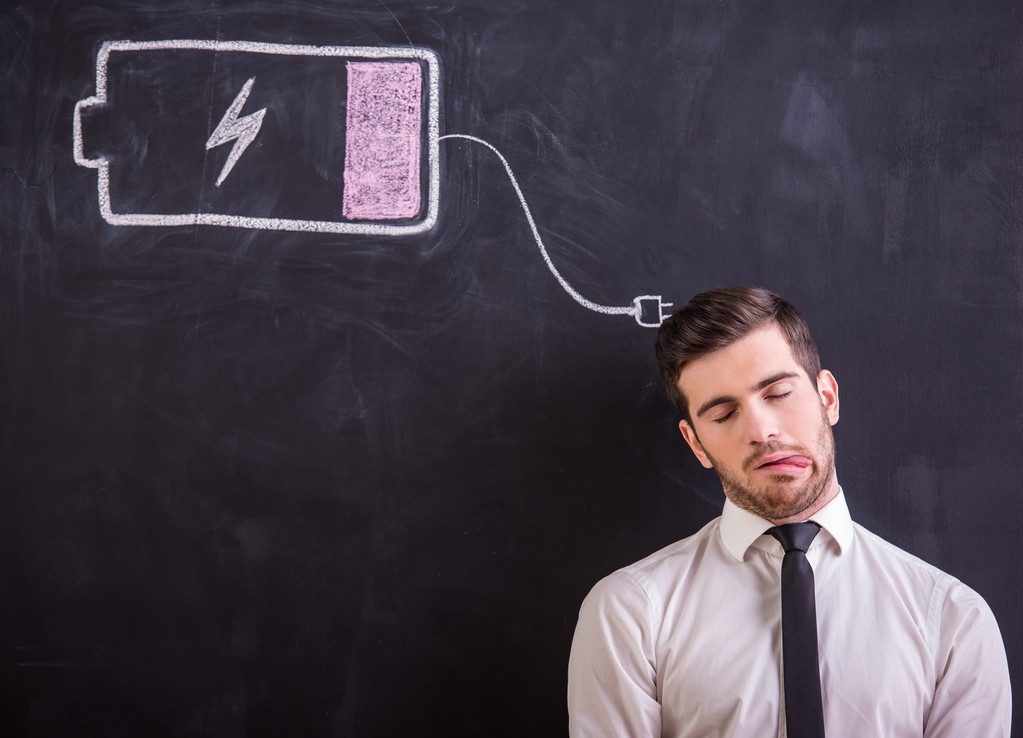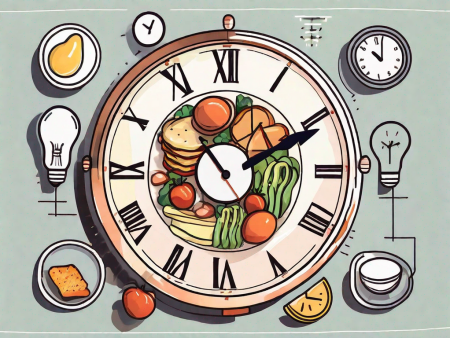Discover the link between medical conditions and low energy levels.
Can Certain Medical Conditions Cause Low Energy?
Are you waving the white flag at your energy levels? Feeling like your get-up-and-go has got up and gone? Well, don’t reach for that energy drink just yet, because there may be more to your low energy than meets the eye. It turns out that certain medical conditions can cause a serious energy drain. So, let’s dive into the dynamic world of energy levels and explore how our bodies can sometimes become energy sponges.

Understanding Energy Levels in the Human Body
Before we explore the murky underworld of low energy, let’s first shine a light on how our bodies produce and utilize that wonderful thing called energy. Our metabolism, that mysterious force within us, works hard behind the scenes to convert the food we consume into energy. Think of metabolism as the conductor of an orchestra, orchestrating the breakdown of nutrients and the production of energy. Without a well-functioning metabolism, the symphony of energy in our bodies can turn into a cacophony of fatigue.
But metabolism isn’t the only player in this energy game. Sleep, that slumbering beauty, also plays a crucial role in recharging our energy reserves. Quality sleep allows our bodies to repair and rejuvenate, ensuring we wake up feeling refreshed and ready to take on the day. So, if you’re tossing and turning all night like a fish out of water, it’s no wonder your energy levels are taking a nosedive.
Now, let’s dive deeper into the fascinating world of metabolism. This intricate process involves a series of chemical reactions that occur within our cells to convert the food we eat into energy. It’s like a bustling factory, with different enzymes and molecules working together to break down carbohydrates, fats, and proteins into smaller units that can be used as fuel. These smaller units, such as glucose and fatty acids, are then transported to various tissues and organs in our body, where they are further broken down to release energy.
Interestingly, our metabolism is not a constant process. It can be influenced by various factors, such as age, gender, body composition, and physical activity level. For example, individuals with a higher muscle mass tend to have a higher metabolic rate, as muscles require more energy to maintain compared to fat. Additionally, certain medical conditions, such as hypothyroidism or diabetes, can affect metabolism and lead to changes in energy levels.
Now, let’s shift our focus to the importance of sleep in maintaining optimal energy levels. When we sleep, our bodies go through different stages, each serving a unique purpose in the restoration and replenishment of our energy reserves. During deep sleep, also known as slow-wave sleep, our bodies engage in tissue repair, growth, and immune system strengthening. This is the time when our muscles recover from the day’s activities, and our cells undergo repair and regeneration.
On the other hand, REM (rapid eye movement) sleep, often associated with dreaming, plays a crucial role in cognitive function and memory consolidation. It is during REM sleep that our brains process and store information, helping us retain knowledge and improve overall mental performance. Without sufficient REM sleep, our cognitive abilities can suffer, leading to difficulties in concentration, problem-solving, and decision-making.
So, as you can see, sleep is not just a period of rest; it is a vital process that allows our bodies and minds to recharge and prepare for the challenges of the day. Neglecting sleep can have profound effects on our energy levels, leaving us feeling sluggish, irritable, and unable to perform at our best.
In conclusion, understanding the intricate dance between metabolism and sleep is crucial for maintaining optimal energy levels. By nourishing our bodies with nutritious food and giving ourselves the gift of quality sleep, we can ensure that the symphony of energy within us plays harmoniously, allowing us to thrive and excel in all aspects of life.
The Role of Metabolism in Energy Production
Cue the spotlight on metabolism! This superstar process is responsible for breaking down carbohydrates, proteins, and fats into usable energy. It’s like a well-oiled machine, working tirelessly day and night to keep our energy levels up. But here’s the kicker: certain medical conditions can throw a wrench into this well-oiled machine, causing our energy levels to plummet.
One of the prime culprits here is thyroid disorders. When the thyroid gland isn’t pulling its weight, it can lead to a sluggish metabolic rate, zapping us of our energy reserves. So, if you find yourself yawning your way through the day and reaching for your tenth coffee, it’s time to give that thyroid a good once-over.
How Sleep Affects Energy Levels
Ever heard the phrase “sleep is for the weak”? Well, whoever said that clearly didn’t understand the importance of quality sleep in maintaining our energy levels. We spend a third of our lives snoozing, and for good reason! During sleep, our bodies are hard at work repairing and rejuvenating, ensuring our energy reserves are ready for the next day’s adventures. So, if you’re burning the midnight oil and skimping on your sleep, don’t be surprised when your energy levels start to resemble a deflated balloon.
But it’s not just the duration of sleep that matters; it’s also the quality. Restless nights spent tossing and turning can leave us feeling like we’ve run a marathon in our sleep. So, if you’re waking up more tired than when you went to bed, it’s time to cozy up to some sleep hygiene practices and kiss those snoozeless nights goodbye.
Medical Conditions Associated with Low Energy
If you’re thinking, “Hey, my metabolism is on point, and I sleep like a log, so why am I still dragging my feet?”, it’s time to explore the world of medical conditions that can turn us into energy-challenged individuals. Let’s shine a light on three common culprits: thyroid disorders, anemia, and chronic fatigue syndrome.
Thyroid Disorders and Energy Levels
Remember that underachieving thyroid gland we mentioned earlier? Yeah, it’s back for an encore. Thyroid disorders, such as hypothyroidism, can cause a slowdown in the metabolic rate, leaving us feeling like we’ve been hit with a double dose of drowsy. So, if you’re constantly stuck in second gear, feeling like you’re wading through quicksand, it might be time to give that thyroid a little extra attention.
Anemia and Its Impact on Energy
Anemia, oh anemia, you energy-sucking vampire. This condition occurs when our red blood cells are lacking in one vital ingredient: iron. Without enough iron, our blood can’t transport oxygen efficiently, leading to that dreaded feeling of fatigue. So, if you’re feeling like a deflated balloon and have the energy levels of a sloth in a garden of molasses, it’s time to get your iron levels checked.
Chronic Fatigue Syndrome: A Closer Look
Ah, chronic fatigue syndrome, the enigma of energy depletion. With its mysterious origins and debilitating symptoms, chronic fatigue syndrome can leave its victims feeling like they’ve enrolled in the school of perpetual tiredness. Characterized by extreme fatigue lasting more than six months, this condition is a heavyweight champion when it comes to draining our energy reserves. So, if you suspect chronic fatigue syndrome is lurking in your life, it’s time to seek professional help and turn the tide on tiredness.
Mental Health and Energy Levels
The connection between our mental health and energy levels is like a tightly woven tapestry. When our mental well-being takes a hit, our energy levels can suffer alongside it. Two common culprits in this energy-depleting duo are depression and anxiety disorders.
Depression and Its Connection to Low Energy
Depression, that dark cloud that can hover over our lives, is not just an emotional burden. It can also drain us of our physical energy. Feeling sluggish, fatigued, and lacking the motivation to even lift a finger are all trademarks of depression. So, if you’re feeling like a sloth on a Monday morning, it’s time to explore the possibility that depression may be a contributing factor.
Anxiety Disorders and Energy Depletion
Anxiety, the never-ending worry machine, can take a serious toll on our energy reservoirs. Constantly being in a state of high alert can leave us feeling mentally and physically drained. So, if you’ve got a flurry of butterflies in your stomach and the energy levels of a flatlining battery, it’s time to give anxiety the attention it deserves.
Hormonal Imbalances and Energy Levels
Ladies and gentlemen, welcome to the hormonal rollercoaster! Hormonal imbalances, such as those experienced during menopause or andropause, can wreak havoc on our energy levels.
Menopause and Energy
Ladies, buckle up for the wild ride that is menopause. As our bodies navigate the hormonal changes that come with this life stage, we may find ourselves feeling like our energy levels are playing a disappearing act. Hot flashes, sleep disturbances, and mood swings can all leave us dragging our feet. So, if you’re feeling like your energy has deserted you on this hormonal journey, know that you’re not alone.
Andropause and Its Effect on Energy
Men, gather ’round! While women have menopause, men experience their own version of a hormonal rollercoaster known as andropause. As testosterone levels decline, energy levels can follow suit. So, if you’re feeling like your get-up-and-go got up and went, it’s time to consider whether andropause is playing a role in your energy woes.
How to Identify Low Energy Levels
We’ve explored the various medical conditions and factors that can drain our energy reserves, but how do we actually identify low energy levels in ourselves? Here are a few telltale signs that your energy levels may be running on empty:

Recognizing the Symptoms of Low Energy
1. Feeling exhausted even after a good night’s sleep2. Lacking motivation and struggling to complete daily tasks3. Difficulty focusing and concentrating4. Feeling irritable and moody5. Craving caffeine and sugar as a quick energy fix6. Decreased physical endurance and exercise intolerance
If you find yourself nodding along to these symptoms, it might be time to kick your energy levels into high gear and seek some extra support.
When to Seek Medical Help for Low Energy
While occasional dips in energy are a normal part of life, persistent and unexplained low energy levels can be a sign of an underlying medical condition. If you’ve tried all the self-help tricks in the book, such as getting enough sleep, eating a balanced diet, and managing stress, but your energy levels remain in the gutter, it’s time to seek medical help. A healthcare professional can help identify the root cause of your low energy and guide you towards a tailored treatment plan.
So, dear reader, if you’re feeling like the energizer bunny without the batteries, know that certain medical conditions can indeed cause low energy. From metabolic mischief to the hormonal hijinks of menopause and andropause, there’s a whole world of factors that can leave us feeling like a deflated balloon. But fear not! Armed with knowledge and a little professional help, you can banish low energy and reclaim your zest for life. So, let’s raise a cup of (decaf) coffee to recharging those batteries and embracing a life full of boundless energy!








Can you be more specific about the content of your article? After reading it, I still have some doubts. Hope you can help me.
Thank you for your sharing. I am worried that I lack creative ideas. It is your article that makes me full of hope. Thank you. But, I have a question, can you help me?